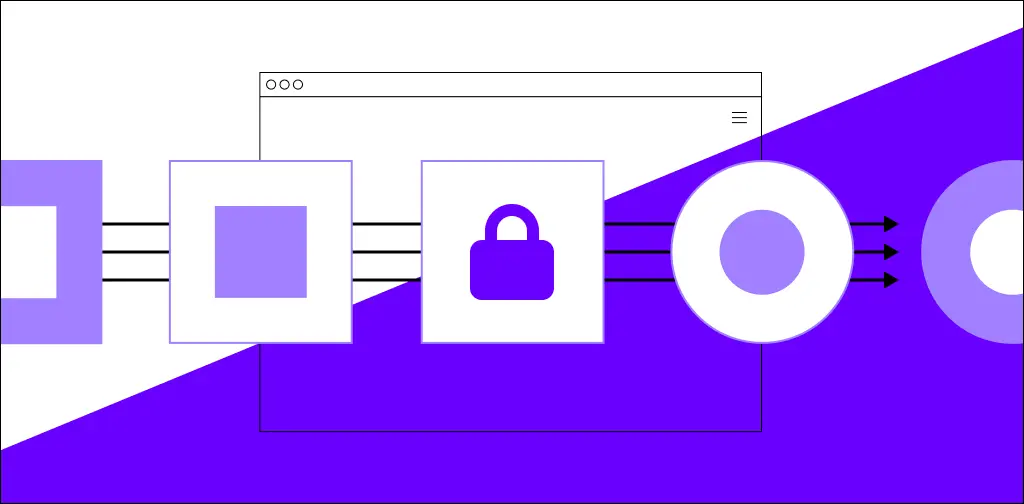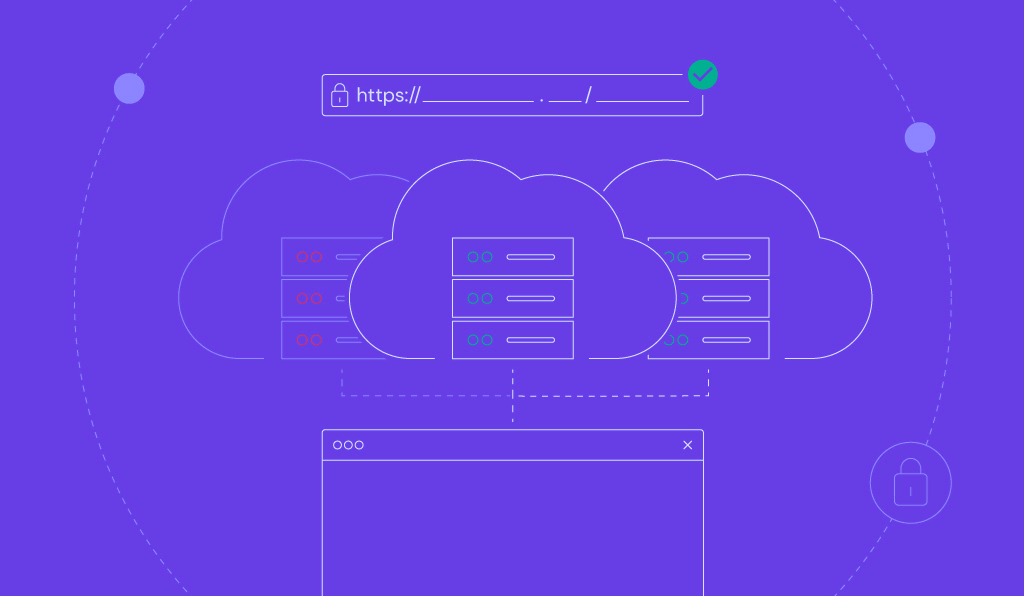Magento, a powerful platform in the eCommerce landscape, owes its prominence not only to its appealing features but also to its lack of a dedicated host. Initially, this may appear as a roadblock, yet it reveals itself as a strategic advantage, offering shop owners the flexibility to meticulously select a hosting provider that aligns flawlessly with their specific requirements.
Understanding the essence of hosting in general, and more critically, grasping the nuances of Magento hosting, is crucial. This article demystifies what is Magento hosting, delving into the four distinct hosting types, and the nuances between managed and unmanaged hosting, and identifies the optimal Magento hosting solution, equipping you with all the necessary knowledge to make an informed decision.
Table of Contents
What Is Magento Hosting?
Magento Hosting is a specialized web hosting service designed specifically for the Magento eCommerce platform. Before delving into Magento hosting, it’s essential to understand the basic concept of hosting in general.
What Is Hosting?
Hosting refers to the service of providing storage space and access to websites. It’s the foundation that allows your website to be accessible on the internet.

A hosting provider allocates space on a web server for a website to store its files, these files constitute the website. Hosting services come in various forms, including shared, dedicated, and cloud hosting, each offering different levels of resources, performance, and control.
Although self-hosting a website is an option, typically, one opts for the services of a professional web hosting company. This company offers space on a server, which they either own or lease, to host your website. Additionally, the web host facilitates internet connectivity, usually via a data center, to ensure your website remains accessible online.
The Definition of Magento Hosting
Magento hosting is a specialized form of web hosting tailored to meet the unique requirements of Magento-based websites. It offers essential resources and dedicated support for operating a Magento store, encompassing enhanced memory and CPU capacities, along with tailored security measures.

Both conventional web hosting providers and those specializing in Magento can offer this service. For small to medium-sized Magento stores, a standard web hosting provider might suffice. However, for larger or more intricate Magento stores, it might be necessary to seek out a host that specializes in Magento, to ensure optimal performance and support.
While Magento can technically run on standard web hosting services, specialized Magento hosting providers offer an environment that’s tailored to maximize the performance and security of Magento sites. These hosts often provide additional services like automated Magento updates, dedicated Magento support, and specific optimizations that can improve site speed and reliability.
Benefits of Magento Hosting
Magento Hosting offers a range of benefits tailored to enhance the performance and manageability of Magento-based eCommerce sites. These benefits cater to various aspects of web hosting, from installation to security, ensuring a comprehensive and efficient online store management experience.
Straightforward Installation
Magento Hosting simplifies the process of setting up an online store. Many Magento hosting providers offer one-click installation solutions, making it straightforward for users to install and launch their Magento platform quickly and efficiently.

This feature is especially beneficial for those who may not be technically savvy, allowing them to get their eCommerce site up and running with minimal hassle. Instead of spending time trying to sync their eCommerce software with the web hosting service, merchants can direct their efforts toward developing and enhancing their websites.
Great Scalability
One of the standout features of Magento Hosting is its scalability. As your online business grows, your hosting plan can easily be adjusted to accommodate increased traffic and more extensive inventory. This scalability ensures that your eCommerce site remains fast and responsive, even during peak traffic times or as your product range expands.
With Magento hosting, businesses have the assurance that their online presence can scale up or down as needed, providing a stable, responsive platform that evolves with the business’s needs.
Ensured Compatibility
Magento hosting is specifically designed to seamlessly integrate with the Magento eCommerce platform, ensuring that all components of your online store work harmoniously together. This compatibility eliminates the common technical challenges and conflicts that can arise when trying to pair Magento with generic hosting solutions.

With Magento Hosting, you are guaranteed a hosting environment that is perfectly attuned to the requirements of the Magento software, from the server setup and PHP configurations to the database management systems. For store owners, this means less time troubleshooting compatibility issues and more time focused on growing their business.
Zero Performance Issues
Occasionally, Magento sites experience slow loading times, but the problem often lies not with Magento itself, but with the choice of an inadequate web hosting plan. These plans may lack the necessary power and bandwidth to efficiently run a Magento site.
By selecting a Magento-specific web hosting plan that caters to the unique demands of the platform, website owners can significantly reduce or eliminate performance issues. These specialized plans are designed to provide the optimal level of resources required, ensuring that the site operates smoothly, loads quickly, and delivers a seamless user experience.
Reasonable Pricing
Magento hosting is not only tailored for optimal performance but also stands out for its reasonable pricing, making it an attractive choice for businesses of various sizes. Despite offering specialized services for Magento sites, these hosting plans are priced competitively, ensuring that businesses can access high-quality hosting without overstretching their budgets.

The pricing models are often flexible, with a range of plans to accommodate different needs and scales of operations, from small startups to larger enterprises. Unlike some web hosting plans that initially seem affordable but later impose unexpected fees for adding necessary apps, Magento hosting offers transparency and reliability in pricing. This approach provides a clear understanding of costs upfront, without unexpected expenses.
High-level Security
The significance of robust security in the realm of online commerce cannot be overstated, and this is where Magento hosting excels, offering an elevated level of protection for eCommerce sites. Opting for a Magento hosting plan is a critical step in safeguarding your online store. These hosting plans are specifically designed with strong security measures, including advanced firewalls that act as a formidable barrier against potential hackers.

In addition to these firewalls, Magento hosting plans often come with additional security features that further fortify your website’s defense. This includes the provision of SSL certificates, which are essential for encrypting data and ensuring secure transactions. Moreover, Magento hosting typically offers specialized security software options that can be integrated into your website, providing an extra layer of protection.
Collectively, these security measures instill a sense of confidence and trust, not only for the store owners but also for their customers, knowing that their transactions and personal data are handled with utmost security.
Difference Types of Magento Hosting
Magento Hosting comes in various types, each designed to suit different business needs and technical requirements. Understanding these variations can help you choose the most appropriate hosting solution for your Magento store.
Shared Hosting
Shared hosting is a widely chosen option for Magento hosting, particularly appealing for its simplicity and cost-effectiveness. In this setup, as implied by the name, your Magento site shares a server with other websites. This type of hosting is often favored by those starting out or managing smaller online stores because the hosting provider handles the technical setup. This arrangement allows you to concentrate fully on developing and customizing your Magento store.

However, shared hosting has its limitations, notably in terms of shared resources. Bandwidth, a critical component for website performance, is divided among all the websites on the server. If one site experiences a surge in traffic, perhaps due to a successful marketing campaign, it can consume a disproportionate share of the resources. This can lead to slower performance for other sites on the same server, including yours.
Another concern with shared hosting is security. Since all sites on a shared server use the same resources, they are collectively more susceptible to cyber threats. If one site is compromised, there’s a risk that other sites on the server, including yours, could be affected as well.
Given these considerations, shared hosting is most suitable for Magento stores with lower traffic volumes and those not anticipating significant growth in the near future. It offers a practical starting point for new or small-scale online retailers but may require reevaluation as the store grows and demands evolve.
Dedicated Hosting
Dedicated hosting for Magento presents a significant shift from the shared hosting environment. In this model, you lease an entire server, typically housed in a data center, exclusively for your use. This approach brings several advantages, particularly in terms of control and customization.
With dedicated hosting, you have full command over your server. This means you can perform software updates, install security patches, and customize the server settings – like choosing the operating system or adjusting the memory size – to precisely fit your needs, all without needing approval from the hosting provider.

However, dedicated hosting comes with its own set of challenges. Firstly, it is generally more expensive than most other hosting options, which can be a considerable factor for many businesses.
Another significant limitation is its lack of scalability. Because you are confined to the physical capacities of a single server, quickly scaling up resources in response to sudden spikes in traffic, such as during holiday seasons, can be difficult. This can lead to performance issues, where your website might lag or become less responsive during peak times.
Furthermore, if the server encounters problems, like crashing due to high traffic, it could result in notable downtime for your website, potentially affecting customer transactions and overall user experience.
Thus, dedicated hosting is often best suited for larger, more established Magento stores with predictable traffic patterns and the budget to invest in high-level control and customization. It offers an environment tailored to the specific needs of your store but requires careful consideration of its limitations in scalability and cost.
VPS Hosting
VPS (Virtual Private Server) hosting for Magento represents a blend of the characteristics of both shared and dedicated hosting. In this setup, while your Magento store is hosted on a server shared with others, it benefits from dedicated virtual spaces within that server.
This means that although the physical server is shared, you have distinct resources allocated for your store’s performance. These resources are split more evenly compared to a shared hosting environment, effectively offering you a dedicated virtual server within a shared physical framework.
A major advantage of VPS hosting is its stability, which surpasses that of shared hosting. Since performance resources are not shared in the same way as in a traditional shared environment, the risk of performance degradation due to other users’ activities is significantly reduced.

Additionally, with only about 10–20 stores running on a single server, VPS hosting allows for more scalability, accommodating growth more easily than shared hosting. Moreover, VPS hosting provides considerable operational flexibility, enabling you to make customizations and configurations without impacting other users on the same server, a limitation often encountered in shared hosting.
However, VPS hosting does come at a higher cost than shared hosting. It also demands a certain level of technical know-how for effective management. Without adequate experience, handling VPS configurations can be challenging and may lead to errors like accidental deletion of important files.
Therefore, VPS hosting is typically well-suited for businesses that have outgrown shared hosting and are beginning to see growth, requiring more resources and operational flexibility than shared hosting can provide.
Cloud Hosting
Cloud hosting represents the most modern and flexible hosting solution, particularly well-suited to the dynamic nature of the eCommerce industry. Embraced by some of the largest online businesses, cloud hosting’s popularity stems from its ability to adeptly handle the unpredictable traffic patterns typical in eCommerce.
The primary advantage of cloud hosting is its virtually limitless scalability. Since it operates across multiple servers, cloud hosting can efficiently manage unexpected surges in traffic. This capability is crucial in maintaining site performance during critical moments, such as when customers are browsing products or during the checkout process, ensuring there are no downtimes or slowdowns.

Another significant benefit of cloud hosting is its cost-effective, pay-as-you-go pricing model. This approach allows for precise control over resources, meaning you only pay for the server capacity you use as you need it. This can lead to substantial cost savings, particularly for businesses with fluctuating traffic. However, it’s important to note that cloud hosting requires effective management; poorly managed cloud resources can result in higher costs and reduced efficiency.
Overall, cloud hosting offers a powerful, scalable, and potentially cost-efficient solution for Magento stores, especially those experiencing or anticipating rapid growth and varying levels of web traffic.
Managed Magento Hosting and Unmanaged Magento Hosting Comparative
When it comes to Magento hosting, a key decision for businesses is choosing between managed and unmanaged hosting solutions. Each has distinct features and benefits, catering to different needs and technical capabilities of users.

Managed Magento Hosting focuses on providing a hassle-free experience for the user. In this model, the hosting provider takes care of the technical aspects of running a Magento store. This includes server management, software updates, security protocols, and often, performance optimization.
Managed hosting is ideal for businesses that lack technical expertise or prefer to focus their resources on other aspects of their operation rather than on managing the technicalities of their hosting environment. It typically comes with dedicated support and is a bit more expensive due to the range of services it provides.
Key benefits include:
- Time-saving with automatic updates and backups.
- Enhanced security with regular scans and proactive threat management.
- Expert support for Magento-specific issues.
Unmanaged Magento Hosting, on the other hand, offers more control but requires a higher level of technical knowledge. In this scenario, the user is responsible for managing the server, including installing Magento, applying updates, managing backups, and setting up security measures.
While unmanaged hosting is usually cheaper than managed hosting, it demands significant time and expertise to ensure the server runs smoothly and securely. This option is suitable for those with the technical know-how who wish to have full control over their hosting environment.
Key considerations include:
- Lower cost but requires more technical involvement.
- Full control over the hosting environment, allowing for custom configurations.
- Ideal for tech-savvy users or those with access to IT resources.
Who Is Magento Hosting for?
Magento hosting is ideally suited for businesses aiming to establish or expand their presence in the online retail space. As a robust and comprehensive eCommerce platform, Magento offers an array of features essential for creating and managing an online store. It caters to businesses seeking a complete eCommerce solution, encompassing elements from a versatile shopping cart system to integrated payment gateways.
Businesses that would particularly benefit from Magento hosting include those that require a customizable and scalable platform capable of accommodating a growing product range and customer base.
Magento’s versatility makes it ideal for both small businesses venturing into online sales and larger enterprises seeking a sophisticated, feature-rich eCommerce environment. With its ability to provide a seamless and efficient shopping experience, Magento hosting is a go-to choice for businesses focused on building a strong, successful online marketplace.
How to Choose the Most Suitable Magento Hosting for Your Business?
Choosing the most suitable Magento hosting for your business is a decision that hinges on your specific needs and requirements, as there is no one-size-fits-all solution in this realm. The best Magento hosting varies greatly depending on the unique characteristics and stage of your eCommerce business.
Firstly, if you’re just beginning with your first eCommerce shop, your hosting requirements will be quite different from an established company that’s been in the market for decades and is undergoing a strategic transformation. Understanding where your business stands and what its future trajectory might be is crucial in selecting the right hosting.
Key considerations when choosing a Magento hosting provider include:
- Assess Your Business Size and Traffic Volume: Evaluate the size of your business and the expected traffic. Smaller businesses with less traffic may opt for shared hosting, while larger businesses or those expecting high traffic should consider VPS, cloud, or dedicated hosting for better performance and stability.
- Consider Scalability: Your chosen hosting should be able to grow with your business. Look for options that offer easy scalability, especially if you anticipate a growth in traffic or an expansion of your product line.
- Check Performance and Speed: Magento can be resource-intensive, so ensure that the hosting provider offers high performance and speed. Look for features like SSD storage, caching mechanisms, and content delivery networks (CDNs).
- Evaluate Security Measures: Since eCommerce sites handle sensitive customer data, robust security features are a must. Check for SSL certificates, firewalls, regular security patches, and DDoS protection.
- Look for Magento-Specific Support: Choose a hosting provider that offers strong Magento-specific support. This includes optimized server configurations for Magento, support for required PHP extensions, and a knowledgeable technical support team.
- Examine Uptime Guarantees: Reliable uptime is crucial for eCommerce sites. Look for hosting providers with high uptime guarantees to ensure that your site remains accessible to customers at all times.
- Consider Managed vs. Unmanaged Hosting: Decide if you need managed hosting, where the hosting provider takes care of maintenance and updates, or if you have the capability to manage an unmanaged hosting setup.
- Analyze Pricing and Value for Money: Compare pricing plans of different hosting providers. Ensure you understand what’s included in each plan and beware of hidden costs. Opt for a plan that offers the best value for money, considering your specific requirements.
- Read Reviews and Testimonials: Check out customer reviews and testimonials to gauge the reliability and quality of service provided by the hosting company.
- Test Customer Support: Before finalizing a hosting provider, test their customer support for responsiveness and expertise, as timely and effective support is crucial for any potential issues you may encounter.
A professional hosting provider will consider these aspects and work with you to offer a Magento hosting plan that’s tailored to your specific needs. It’s important to have a clear understanding of your business requirements and growth projections to make an informed decision that aligns with your eCommerce ambitions. You can refer to our top best Magento hosting providers article to have a comprehensive understanding of the pioneer organizations in the field and choose the right one for your business.
In Conclusion,
Magento Hosting is a specialized web hosting solution crafted to cater to the unique demands of Magento-based online stores. It stands out for its ability to provide optimized performance, enhanced security, and the scalability necessary to support the growth and complexity of eCommerce operations.
Whether you are just starting or running a large-scale online store, Magento hosting offers a range of options, from shared to dedicated hosting, each tailored to different business needs. Understanding your specific requirements, such as the type of hosting, level of support, management, and budget, is crucial in selecting the most suitable Magento hosting for your business. If you still encounter so many obstacles to choosing the right one for your business, don’t hesitate to contact our specialist and receive advanced consultancy.











